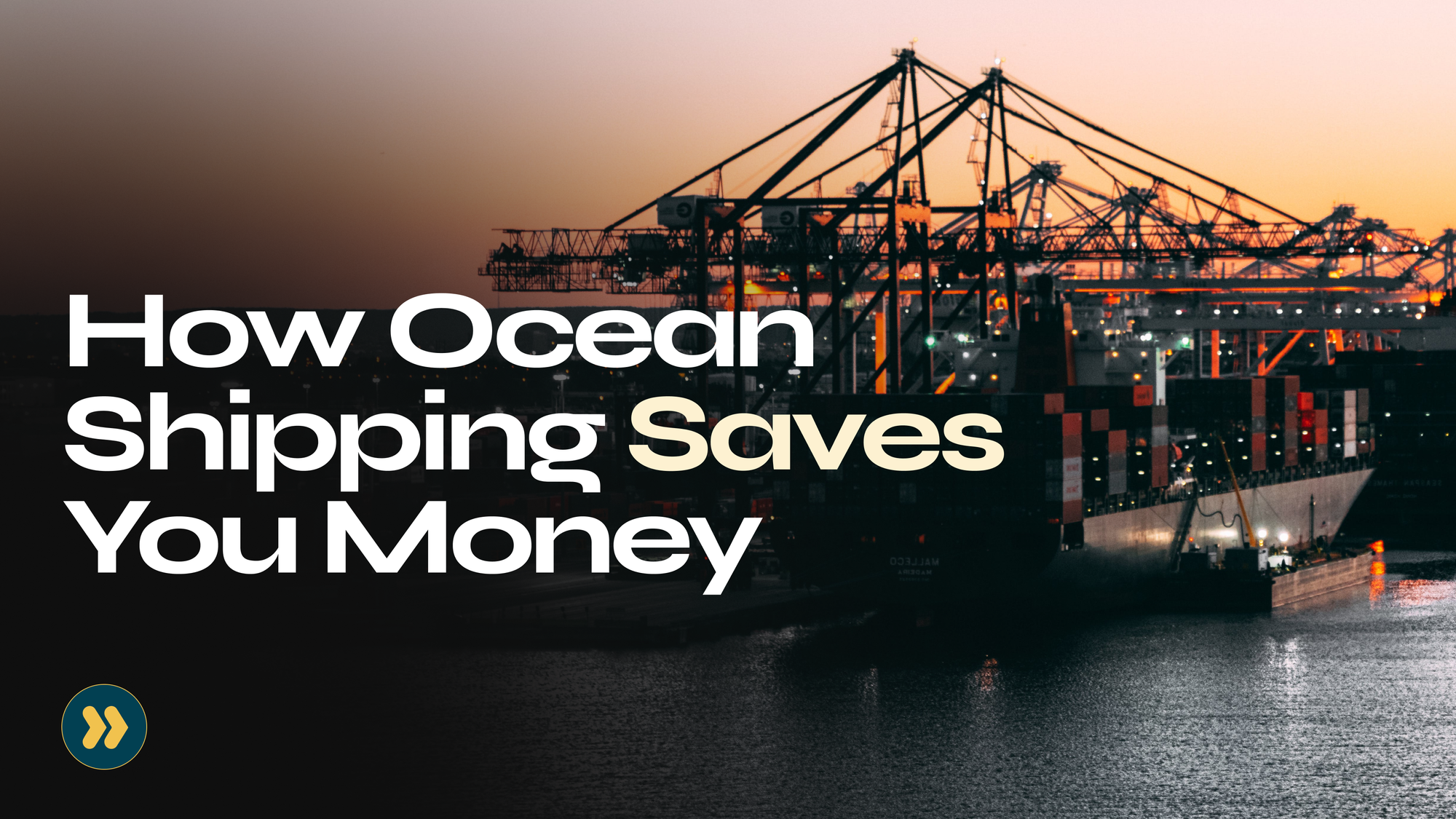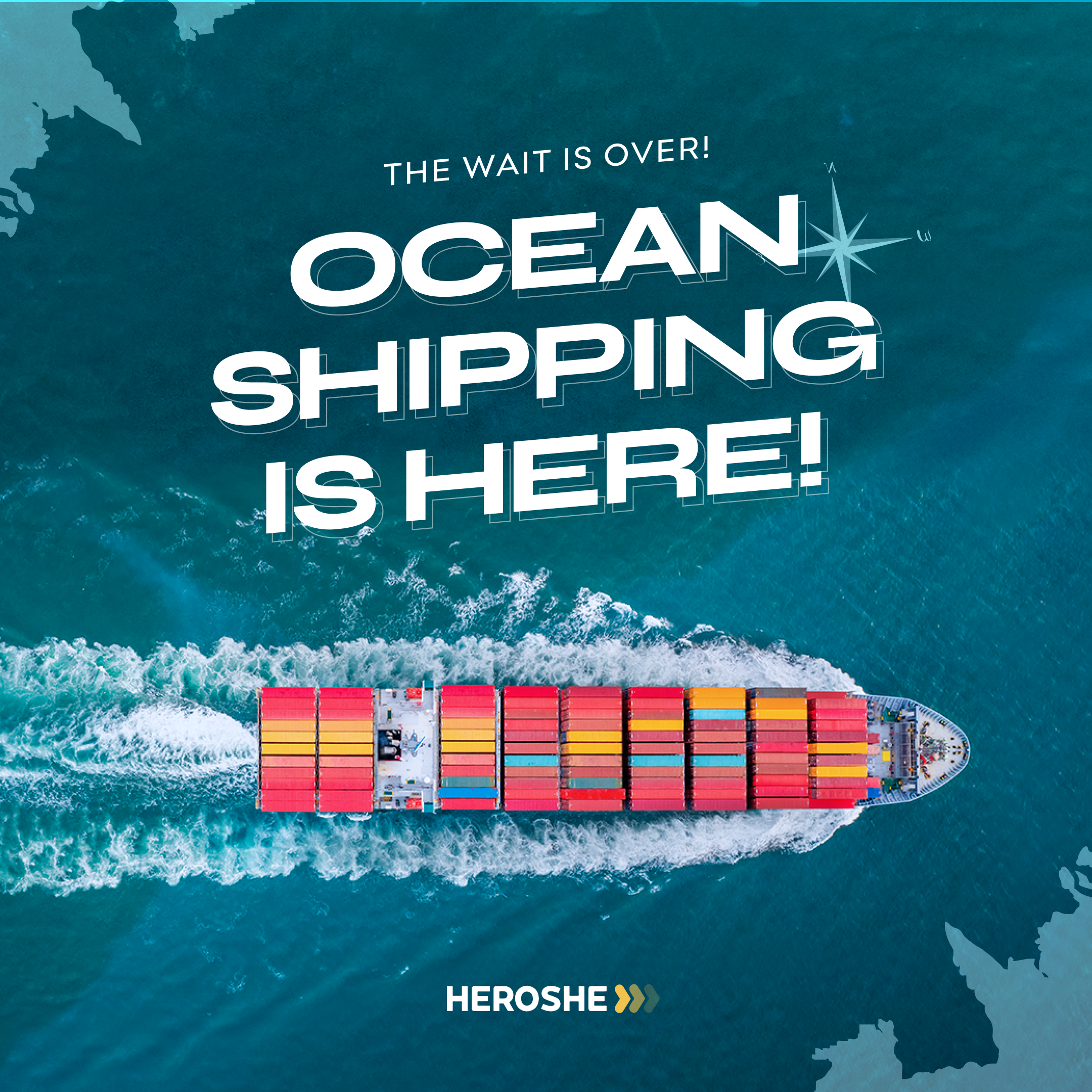How Ocean Shipping Saves You Money

Have you ever been in a debate where facts played second fiddle to personal opinions? The facts support your claim, but the person you’re arguing seems to think otherwise. I found myself in such a position recently as I argued with someone that ocean shipping was a more cost-effective way of shipping.
If you've ever questioned the efficiency and savings potential of ocean shipping, you're in the right place. By the end of this article, you will understand how ocean shipping saves you money. You'll also learn strategies you can use to optimise ocean shipping costs.
What is Ocean Shipping?
Ocean shipping, also known as sea freight, is a mode of transportation that involves moving goods across the sea. It is a cost-effective method of transporting large quantities of goods over long distances, making it a popular choice for international trade. Compared to other methods of transportation, such as air freight or road transport, ocean shipping is often more economical due to its ability to carry a large volume of cargo at a relatively low cost per unit.

How Ocean Shipping Saves You Money
You must have constantly heard that ocean shipping is cheaper than other transportation modes. But how exactly is it cheaper?
Lower Cost per Unit
Ocean shipping is often chosen over air freight due to its lower cost of transporting heavy goods per unit. This cost advantage is related to the ability of cargo ships to carry large volumes of goods at once. The cost per unit decreases when shipments are large and can be transported in bulk.
Fewer Restrictions
Ocean shipping has fewer restrictions and regulations compared to air freight. This means that shipping goods across oceans is met with few rules and requirements. Because of this, companies can transport a wide range of goods, including goods that might have restrictions on air freight.
Another advantage of fewer restrictions in ocean shipping is the potential cost savings associated with avoiding special handling fees. There are additional charges for handling hazardous materials or oversized cargo when transporting goods via air. With fewer regulations, ocean shipping allows transporting such items without extra fees.
Fuel Efficiency
Cargo ships are designed to carry many cargo at once over long distances. This allows them to save on fuel costs as they distribute them across all the goods they carry. This makes it possible to lower fuel costs per unit.
Reduced Packaging Costs
Ocean containers are durable and sturdy as they are designed to withstand the rigours of seawater, rough water and handling during loading and offloading at ports. Due to the strength of these containers, the goods inside are safe from damage, which reduces the need for excessive packaging materials like crates and bubble wrap. This can lead to cost savings for businesses as they do not need to invest large sums of money in packaging materials.
Schedule Delivery
One of the reasons people choose air freight over ocean shipping is the speed it promises. If you are constrained on budget and would love to save costs, scheduling your delivery in advance can help you receive your goods when needed. For example, if you need to stock up your inventory in a month using air freight, you can start now to ship your goods via the ocean ways so they can get to your destination without your current inventory running out. This proactive approach helps you manage your inventory levels effectively and optimise your operations for cost-effectiveness.
RELATED: YOU CAN NOW USE HEROSHE FOR OCEAN SHIPPING!!!!
Strategies for Optimising Ocean Shipping Costs
As a business looking to minimise shipping costs and save more money, there are several strategies you can use to optimise your ocean shipping costs. Some of these include:
Negotiating Rates
Just like you would negotiate prices when you go to the market, you need to negotiate rates in the shipping industry as it allows you to secure better deals on transportation. When dealing with freight forwarders or shipping companies, your ability to negotiate rates can affect the total cost of shipping your goods.
Here are some factors to consider when negotiating:
Volume
You would enjoy lower transportation costs because of the shipment volume. Larger volumes often enable businesses to secure more favourable rates.
Frequency
Regular and consistent shipments also give you an upper hand in negotiations. Shipping providers may offer discounts or better terms to clients with frequent shipping needs.
Contract Terms
Negotiating favourable contract terms, such as more extended agreements or commitments, can lead to better rates. Establishing a mutually beneficial and long-term relationship with shipping partners can save costs.
Optimising Container Usage
“See spaceeeee” in Ola of Lagos’s voice. When shipping, one thing you want to take advantage of is space. You have to efficiently manage your space so you’d get to use fewer containers for your items and save on container fees. To do this, you must ensure your goods are strategically packed and stacked within the container space. Proper packing and stacking help you minimise empty spaces and reduce the damage to goods during transit.
Goods must also be secured within the container to prevent shifting during transportation. This ensures safety and allows for more efficient use of space.
Consolidating Shipments
Consolidating shipments means combining several shipments into one larger shipment to help with cost savings. Instead of shipping your smaller packages separately, you can group them to all be shipped as one item. Consolidated shipments can be from different suppliers or locations, meaning you have to be a master at collaboration.

Collaborating with suppliers and logistics partners helps to sync efforts so the goods are ready for transportation simultaneously. Let’s say you run a fashion store with shoes from supplier A, clothes from supplier B and bags from supplier C. You can then send a message to each supplier letting them know that you have other goods at other points and that you’d love to transport them together. This makes it easy for all your packages to be ready at the same time and delivered to your logistics partner for consolidation.
Consolidated shipments help you:
- Save costs as larger shipments mean reduced transportation costs.
- Streamline customs clearance as everything is cleared at once.
- Reduces administrative costs. Instead of managing paperwork, documentation and logistics for different shipments, it then becomes one.
Choosing the Right Service
There are two significant types of ocean shipping services, and the one you choose can either help you save costs or accrue more expenses.
FCL (Full Container Load)
This service involves renting an entire shipping container for your goods. It's suitable when you have a large volume of goods to transport and want the exclusive use of the container.
LCL (Less than Container Load)
With LCL, you share a container with shipments from other companies. This is cost-effective for smaller shipments that only fill part of the container.
Final Thoughts
Ocean shipping's cost-effectiveness can play a vital role in reducing expenses and helping you maximise your business operations. You can also negotiate better transportation deals, giving you a little control over shipping costs. Remember to provide all the necessary information when negotiating with your shipping service provider.
With our recent ocean shipping launch, you can explore our cost-effective option for shipping your items via the sea from the US. With our service, you can consolidate your shipments and save on transportation costs, remove the need for a minimum order, track the whereabouts of your shipments and enjoy love and swift delivery. Be the first to know when we launch by joining our community.

